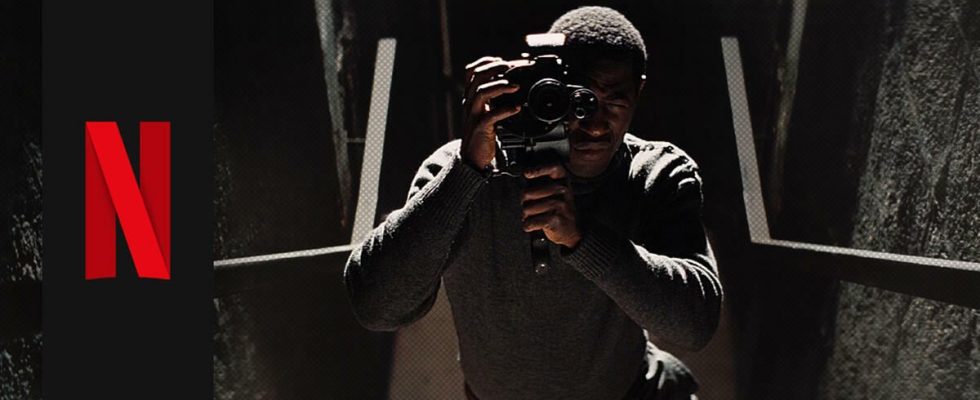Quentin Tarantino has already stepped on the toes of various critics in his career. However, his 2009 war film Inglourious Basterds was watched like a hawk. After the B-film revenge fantasies Kill Bill and Death Proof, Tarantino also dealt with the filmic representation not only of the Second World War, but of the Holocaust. In particular, the finale of the film, which is streaming in the Netflix catalog.
Now on Netflix: Why Inglourious Basterds ushers in a new Tarantino era
Inglourious Basterds is one of Quentin Tarantino’s best films and marks the beginning of a new era in the Pulp Fiction director’s work. Before that, Tarantino worked first and foremost on film history, from the gangster film Reservoir Dogs to the grindhouse entry Death Proof. Of course, film and, above all, genres continue to play a major role, but with Inglourious Basterds that changed Staging of reality into focus: namely history.
Check out the trailer for Inglourious Basterds:
Inglourious Basterds – Trailer 2 (German)
Basterds deals with the war and the genocide of European Jews in a fictional plot inspired by war films such as The Dirty Dozen and Kill All and Return Alone. Django Unchained and The Hateful 8 followed this pattern, tackling slavery and the aftermath of the Civil War. And in Once Upon a Time… in Hollywood, Tarantino turned his attention to the murder of Sharon Tate and her friends by members of the Manson family.
Especially when looking at his most recent film, Inglourious Basterds seems like that Blueprint of Tarantino’s work over the past decade. And that’s especially true at the end. Because Tarantino doesn’t just process real history in fictional scenarios. He rewrites history, so to speak, in Basterds and also in Once Upon a Time…
How was the ending of Inglourious Basterds 2009 received?
The story about the Jew Shoshanna Dreyfus (Mélanie Laurent) and the dirty dozen under Aldo Raine (Brad Pitt), who at the same time try to eliminate the leadership of the National Socialists, is known to take some liberties with the real historical events.
The Basterds ending: “tasteless” and “shockingly insensitive”?
There was a correspondingly great stir after Inglourious Basterds premiered in 2009 in an incidentally spectacular Cannes year (Antichrist! Enter the Void! The White Ribbon!). Basterds became the Discussion material in feature articles, blogs and books like hardly any other Tarantino film before or since.
Ty Burr summed it up in the Boston Globe: “You take a Tarantino film seriously at your own peril, which is why Inglourious Basterds his biggest risk yet is: an entertaining action comedy about – watch out – the Holocaust.” And:
It’s obviously too much to ask of one clever child – which Tarantino still is at 46 – to expect it to deal with the story in some meaningful way.
David Denby in the New Yorker described the film as “ridiculous and shockingly insensitive”. Wendy Ide saw one for the British Times (via Rotten Romatoes). “coarse, infantile and deeply tasteless” Movie.
J. Hoberman of the Village Voice saw a film that “Enables Jews to behave like Nazis by participating in cold-blooded massacres and mass burnings, almost wish fulfillment psychotic break with reality forced.”
Warning, spoilers for the end of Inglourious Basterds follow from here.
Tarantino grows up: The Inglourious Basterds ending was also praised
For Rüdiger Suchsland, however, Inglourious Basterds was Tarantino’s best film at the time, which ended up being I trust something that German cinema is afraid of:
Showing the dead Hitler, damaging his face and thereby damaging the myth itself undead revenants of history Letting people die is what this film does. This could also act as a liberation.
Georg Seeßlen (Spiegel), who also published a book about Inglourious Basterds, “Quentin Tarantino Against the Nazis,” wrote of a “radical gesture” that would mean the end of the Tarantino film:
Maybe that’s what lies in this radical gesture Tarantinism’s coming of age. As paradoxical as this sacrificial process may be, the dream location is sacrificed for reality, but only in a dream for which reality is sacrificed. […] ‘Pulp fiction’ defeats the fascist death kitsch. This director counters the wavering images of the dangerous embrace of discourse and Nazi images with a baseball bat.
You can currently see the film for yourself on Netflix. After so many of Tarantino’s “historical hams” it’s easy to overlook how unusual, surprising and, yes, radical Inglourious Basterds 2009 seemed. It is therefore worth watching the film again with this awareness, because its concept and ending can still be debated 15 years later
